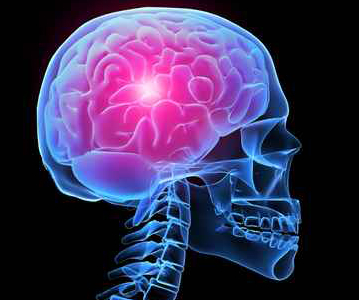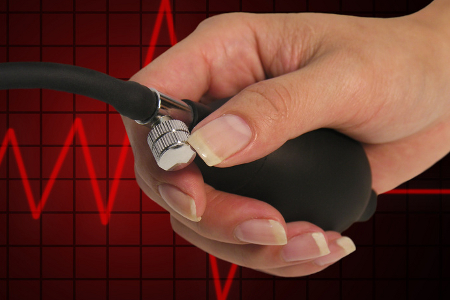
Stress Signals
Issue 57 June 2009
Stress has a greater impact on health than many people realise, so let Noreen A. Kassem help you spot the signs and offer great tips on how to combat it.
Deadlines to meet, exams to face, bills to pay, children to worry over – it’s safe to say that everyone is affected by stress at some point in their life, if not regularly. We have all had to face up to challenges, and that means encountering stressful situations. Even daily life like getting out of bed and getting to work on time can be stressful for many people – which explains why so many heart attacks and strokes occur between 6am and 8am. Stress can result in you feeling overwhelmed, frustrated or anxious, it is enough to cause physical or psychological symptoms. Not all stress causes extreme reactions and we can learn to control how we deal with stressful situations.
Fight or Flight?
Medical research shows that stress causes actual chemical changes in the brain, and these changes can infl uence the state of your well-being. Our bodies and minds react to something that upsets our normal balance in life with a ‘fight or flight’ reaction.
During times of stress the adrenal glands release adrenaline, a hormone that activates our body’s defence mechanisms, causing the heart rate to increase, blood pressure to rise, muscles to tense, and the pupils of our eyes to dilate.
Top tips towards less stress

Eat good food
Eat a well balanced diet including plenty of fruits, vegetables and foods that are high in complex carbohydrates, moderate in protein and low in fat.

Be tactile
The Beatles were on to something when they sang, ‘I wanna hold your hand.’ Research shows that the simple act of holding hands reduces activity in areas of the brain that respond to stress. A hug works much the same way.

Get organised
Do you procrastinate or multitask? Getting organised, scheduling tasks and making to-do lists are simple ways to decrease stress because you’ll be able to find what you need and won’t forget what needs to get done on time!

Get herbal
Help get into a good mood the herbal way by smelling lavender oil, or taking St Johns Wort which both help beat mild anxiety.

Learn to live with it
Learn to accept the things you cannot change, such as traffic or an irritating co-worker, before frustration and anger builds up into harmful symptoms of stress.

Activate your day
Let off steam regularly with a walk or a jog in the fresh air, a yoga class, meditation or a deep breathing exercise – even for only 10 to 20 minutes a day.

Use the spiritual solution
Balance your life with prayer and meditation to fi nd your inner balance and calm. This will help you stay focused and keep positive.

Remember to say no!
Learn the meaning of enough and set boundaries for yourself. Don’t take on additional tasks which affect you and your responsibilities.
CASE STUDY
Maimoona Khan, Student
“Learning to deal with stress can be stressful itself, and takes much trial and error. In the years before university I developed severe, chronic headaches due to tension. These worsened in my first year of university and it became a cyclical reaction: I would be stressed due to the demands of studying but the chronic headaches I suffered from stopped me from being productive.Other symptoms that often came on during times of stress, which for me occurred three or four times a week, were shoulder and neck pain and an upset stomach, but the headaches were the most debilitating. After suffering in silence for four years with chronic headaches, I visited a doctor who told me that what I thought were migraines were actually tension headaches. I learned that tension headaches are the most common type of headaches and up to 80% of adults experience them while 30% of people have chronic headaches due to an unhealthy reaction to stress.
My doctor prescribed extra strength Ibuprofen for the pain and we discussed other ways to prevent tension headaches. After four years of suffering needlessly from stress, I have become much better adapted to channelling stress in more healthy ways. Mindset is very important and stress management and biofeedback are two important strategies to deal with stress. Biofeedback involves being more introspective of feelings so that anxiety and stress can be reduced before they overwhelm. When I begin to get wound up over an exam, I think over what I am worried about and try to put things into perspective and realistically gauge my expectations. Developing a positive mindset and attitude towards life is much more difficult than it sounds and is an ongoing process throughout life. A few stress reduction tips I would suggest are: make sure you eat a balanced meal to ensure you get the right nutrients; cut down on coffee as too much caffeine exacerbates stress symptoms; go for a walk or a run, and take more time out to sit and relax for a few minutes every day. Stress can be managed, it’s just down to how you cope with it.”
Did you know?
For thousands of years, traditional medicines such as Islamic medicine showed how stress caused some types of illness. Physicians and healers believed that emotions were closely linked to disease and patients were often prescribed spiritual and emotional renewal and rest at retreats to recover from illness. Since the early 19th century these ideas have lost favour, though conventional medicine is currently rediscovering the links between the brain and the body’s immune system.
Signs of Stress
Both short term and long term stress can have effects on your body. These effects can make us more likely to get ill, and worsen existing problems. Some researchers think that stress may be a contributing factor in illnesses from insomnia to backaches and depression to chronic fatigue syndrome. Stress can also age you before your time as it damages the immune system.
The risk for heart disease, and certain types of cancers are also increased by stress. In many people stress may lead to autoimmune disorders, diabetes, high blood pressure, heart attacks, strokes and other cardiovascular conditions. People commonly feel the effects of stress as aches and pains, muscle tension, headaches and gastrointestinal disorders such as ulcers and irritable bowel syndrome. For women, stress is often a key factor when experiencing abnormal bleeding or an absence of menstruation. Hormonal imbalances caused by stress may proliferate the symptoms of fibroid tumours, making it difficult to get pregnant. Your skin may also give away your stress levels. The British Journal of Dermatology found that stress increased symptoms in patients with atopic dermatitis such as eczema. Stress is also a trigger for acne because it causes hormonal fluctuations in the body and more oil production in the skin. Stress can also have more subtle symptoms that persist over time: constant worrying, anger, hurt or depression can lead to chronic aches, heart palpitations, insomnia, fatigue, infections and loss of appetite or an increased need to eat.
Childhood Stress
Children suffering from stress can be difficult for adults to comprehend, thinking that it is only their world of bills, work and responsibility which causes stress. However, even very young children can have worries and feelings of anxiety. The UK in particularly has some of the lowest happiness ratings amongst children anywhere in the world.Schoolwork, exams, parental and teacher expectations, peer pressure, bullying, adoption of parental stress, separation anxiety, lack of time to play and homework are just some of the triggers of childhood stress. Ultimately, it is the feeling of being overwhelmed and lacking control which leads to the feeling of pressure on children.Stress in children can be difficult to recognise and the child may not be able to articulate their feelings. A parent might be quite glad of some peace and quiet when a child stays in their room, symptoms such as “tummy ache” can be seen as indicative of an upset stomach and aggressive behaviour can be put down to the child being “naughty”. However, all are potentially symptoms of stress.
Whilst you should not hesitate to get medical issues investigated by a health professional, you can help your child to recognise their stress triggers and regain control of their emotions. Increasing physical activity, proper rest, good nutrition, effective breathing techniques and positive thinking can help children overcome their anxieties. Some very helpful guides have been produced by Free Spirit Publishing to enable children to take control of their emotions and return to a more contented state. Books such as “Be the Boss of Your Stress”, “Stress Can Really Get on Your Nerves” and “When You’re Scared and Worried” provide simple tips to get children back on the road to health and more capable of dealing with their stress issues.
www.freespirit.com
Bookmark this |
|
Add to DIGG |
|
Add to del.icio.us |
|
Stumble this |
|
Share on Facebook |
|
Share this |
|
Send to a Friend |
|
Link to this |
|
Printer Friendly |
|
Print in plain text |
|




Comments
0 Comments